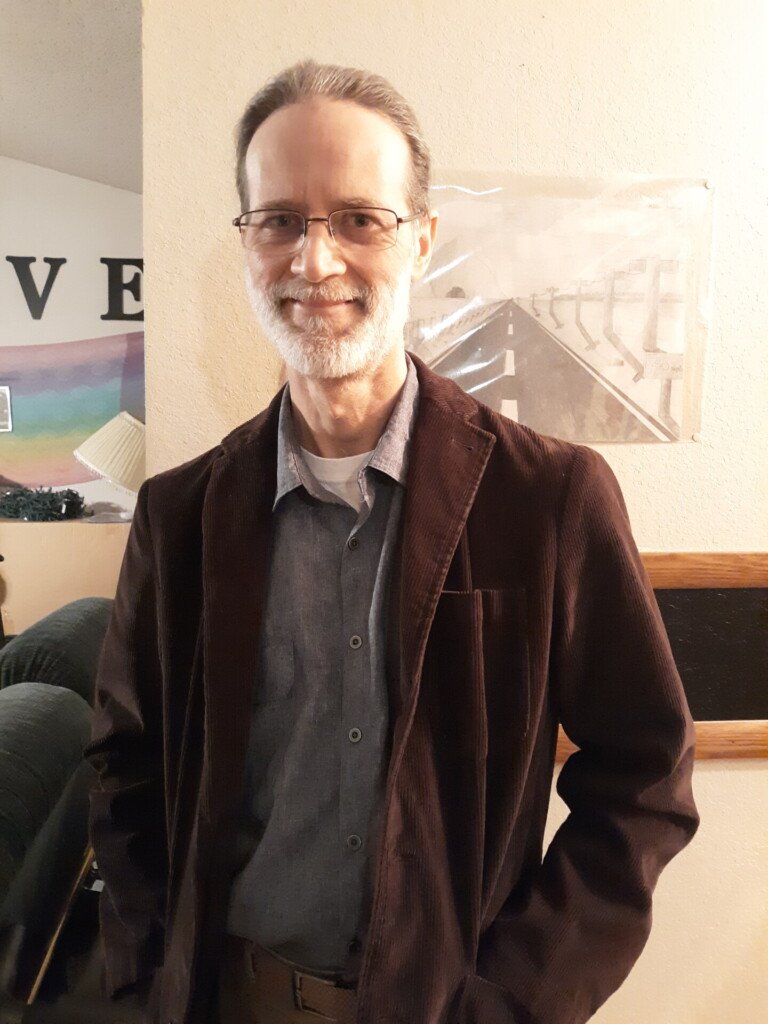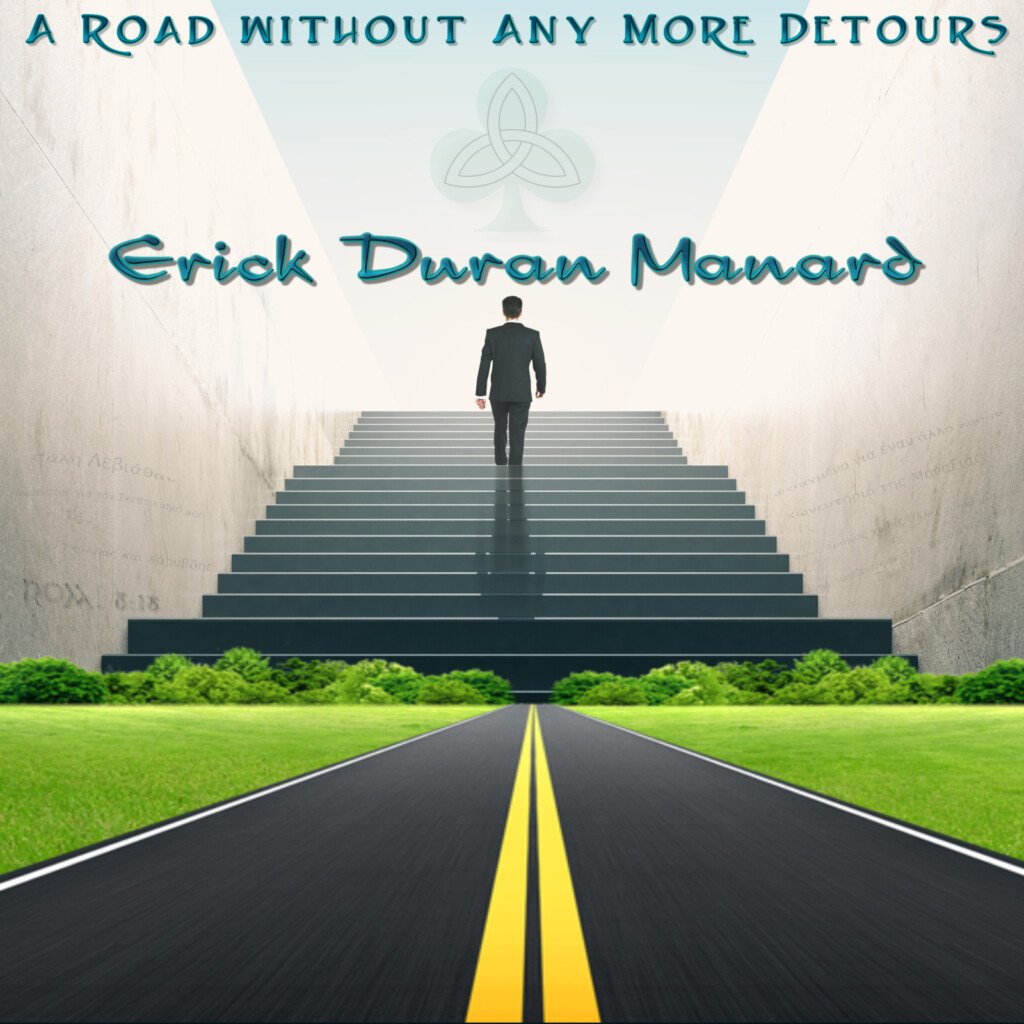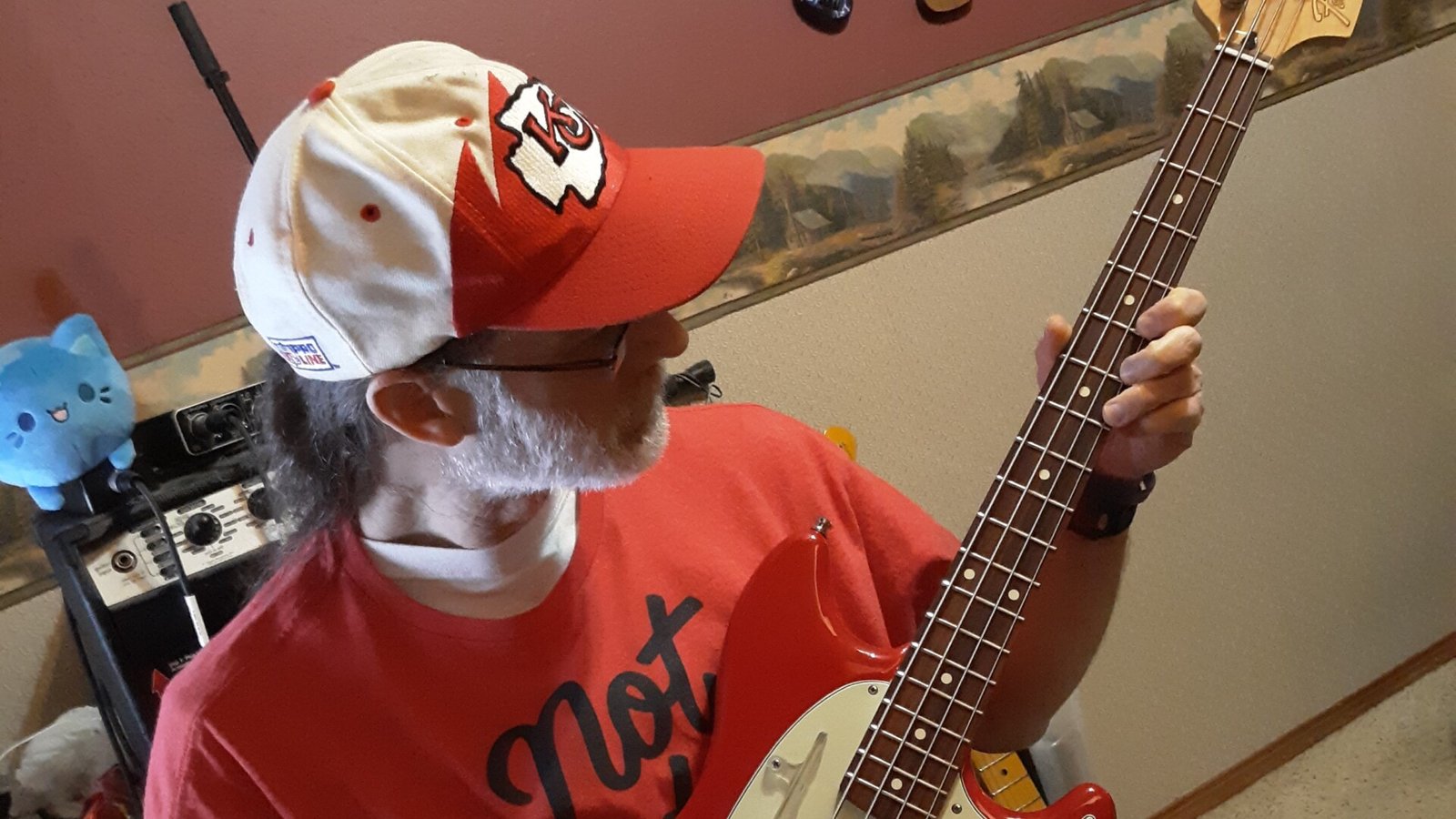Erick was born 9/3/68 in Tulsa, OK and currently live in Glenpool, Oklahoma. HE attended Junior College in the early 90s for computer science, then changed his major to Music upon moving to Dallas. Check out the exclusive Interview below:

1. Your roots can often shape your journey. Can you share a story or moment from your early life that had a significant impact on your path into music?
ERICK DURAN MANARD: Yes, my dad was a professional drummer for several bands and a recording artist who played studio sessions with Charlie Daniels, and backed up folks like Lorretta Lynn, Conway Twitty, etc. In my pre-teens, I was privileged that my dad took us to see Petra in concert, one of my favorite Christian bands. So, my exposure to music was early and often in my formative years. Fast forward some years, I’m 12-14 yrs young, and I hear the first Black Sabbath album, along with Grand Funk’s E Pluribus Funk, and I was hooked on the bass and guitar-driven, blues-based rock. I like vintage sounds. I picked up bass guitar, and I thought, “I can do this, it’s only four strings.” I’ve learned since, there’s much to be done with “only” four strings!
2. Did your musical journey begin with formal training, or was it more of a personal exploration? How has that shaped your unique approach to your craft?
ERICK DURAN MANARD: My journey into musical training began in middle school (6-8 grades), when I joined school band as trombone player. This required learning bass clef, reading notation and lead sheets, and weekly proficiency tryouts to determine chair position. I was usually first chair, donning the “first chair” pin on my shirt. From there, more personal exploration to see which influences resonate with me. But those early experiences helped shape how I approach songwriting and playing and creating: Music has its own language and logic and theory. Good songwriting takes time and practice. But music is not all about theory; sometimes the ear says something sounds good when theory might not agree. My motto: If it sounds good, it is good. Chunk theory and go with your ear and your gut. I’m saying that as someone who’s studied music theory in college. Music is greatly subjective. That’s the artful crafting of musicality: remaining authentic while not abandoning all musical restraints.
3. Who were some of the most influential figures in your early musical life, and how did they inspire your sound? Also, what’s the story behind choosing the name ‘ERICK DURAN MANARD’?
ERICK DURAN MANARD: I mentioned a couple of influences earlier, but over time I’d include Zeppelin, Jeff Beck, King’s X, Galactic Cowboys, early prog bands like Rush, King Crimson, Yes; more modern prog like Queensryche, Porcupine Tree, Pineapple Thief, Riverside. Christian acts that inspire me include Petra, Disciple, Skillet. I like rock for the Rock. I appreciate the prog elements because that inspires me to push the envelope for creativity and not be afraid to sound unique. As for the name, that’s my full legal name, and I’m literally a one-man band. I play all instruments and do all mixing in my home studio.
4. What do you believe sets your music apart? How would you describe your sound to someone discovering you for the first time, and what emotions or experiences do you hope to evoke in your listeners?
ERICK DURAN MANARD: First, most artists don’t play all instruments and do full production on their own records. I’ve learned by trial and error. So, the entire production derives from one man’s head. Usually, there’s a band involved. Not here. Next, the sound is a blend of vintage, guitar-driven sounds with prog elements to keep things interesting. I’m not afraid to throw convention out the window. A sudden tempo change from 4/4 to 6/8 with 16th note hi-hats and back again may be just what I need to carry a few bars in a bridge. The emotions I hope to stir in listeners are the same as mine: visceral, raw, somber, melancholy, gut-wrenching; but always with a note and message of hope. My music is not designed to leave folks in depression, but rather to discuss spiritual reality and encourage, motivate, and inspire others to persevere on this rugged journey of life with many detours. Ultimately, I pray listeners find their hope in the same Jesus I have.

5. Music often transcends entertainment. What’s your view on the role and function of music as political, cultural, spiritual, and/or social vehicles – and do you try and affront any of these themes in your work, or are you purely interested in music as an expression of technical artistry, personal narrative, and entertainment?
ERICK DURAN MANARD: I think that music has been used as vehicles of social change from the beginning of rock. Music has sparked counter-cultural movements and been used to promote change. If that’s where an artist believes his “ministry” is, I can’t criticize that. But for me, music does transcend mere art, but to spark perhaps more subtle shifts in ways people think about their problems, or their faith, or the foundation of their hope when everything seems lost. My music today always has a clear message: Abiding hope is found in Jesus alone. The politics and stuff, I allude to it, more editorial fashion, without making it the focus. Christ is the focus of my music.
6. Can you walk us through your creative process? From the first spark of an idea to the finished track, what’s the most essential part of your process, and how do collaboration or external influences shape your work?
ERICK DURAN MANARD: Sure, I changed my whole creative process with this record and did the opposite. It yielded far better results in every way. I go in studio, typically having no idea what to play, so I pick up an instrument, get a drum groove looped, and start plucking until a useable melody or riff appears. That first spark kindles the eventual dynamic of the song. The song takes on a life of its own at a certain point, and sort of writes itself. When recording a song, I typically don’t listen to outside influences for a while so that my music is more myself and not a copy of someone else.
7. What’s been the most challenging hurdle in either your personal life or music career, and how has it shaped you as an artist?
ERICK DURAN MANARD: The most challenging hurdle for me anymore is keeping my health. I’ve battled Pancreatitis since 2020, and each attack is debilitating for up to 3 weeks, where I’m bedridden. That’s one reason I don’t tour. But this has shaped my faith and given me another reason to wean myself from this world and to be strong in faith toward Him who promised a new world, new hope, and new body in the resurrection.
8. On the flip side, what moment or achievement in your career so far has made you feel the proudest, and why? And let’s talk about your latest release and future plans.
ERICK DURAN MANARD: The moment I finished this album, was the proudest. Not because of me, but because of what Jesus has been able to do through my attempts to bring Him praise through my art.
I consider this new album my magnum opus, a record worthy of my legacy as a representative of the Lord. I’m currently planning videos for each song, maybe a mini-movie. We’ll see.
9. Creative work in a studio or home environment, or interaction with a live audience? Which of these two options excites you most, and why?
ERICK DURAN MANARD: Both are different animals. Working creatively in studio is more exciting from a songwriting perspective, because that’s the chance to get alone with my own ideas and craft things like a puzzle. Playing live is for a different purpose, because this environment is about hearing other people’s ideas; and playing on stage is to lead God’s worship in praise music. That’s exciting too.
10. Do you think is it important for fans of your music to understand the real story and message driving each of your songs, or do you think everyone should be free to interpret your songs in their own personal way?
ERICK DURAN MANARD: I know music is subjective, but I do think it’s optimum for listeners to engage the artist who labors to make one’s music known. It seems that most consumers are content streaming everything without really trying to understand the message or details, since that involves a certain time commitment. My lyrics can be multi-layered with meaning, but usually I’ve got a primary lesson in mind, and just hammer that in the chorus.
KEEP IN TOUCH:
FACEBOOK | INSTAGRAM | TWITTER | SPOTIFY | WEBSITE | YOUTUBE


